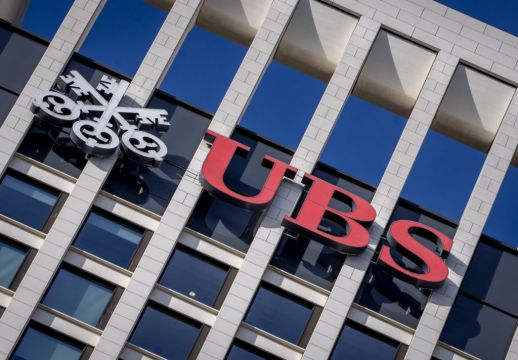Swiss taxpayers are off the hook from a government-engineered rescue plan that doled out billions to help UBS, the country’s largest bank, take over its ailing rival Credit Suisse.
UBS said it has shut down state support that had made available up to 200 billion Swiss francs (about £180 billion) to help shepherd through its takeover of Credit Suisse to avert an international banking crisis.
The Zurich-based banking giant, which completed the takeover on June 12, said it had moved to “voluntarily terminate” rescue programmes that aimed to help mop up billions of losses and provide liquidity to the banks as they moved forward on the complex deal.
UBS said it had repaid 50 billion francs (£45 billion) in loans from the Swiss National Bank as well as loans granted under an offer of up to 100 billion francs (about £90 billion) in liquidity support from the government.
It also said the government’s nine billion-franc (£8 billion) offer to buffer the bank against losses was no longer needed.
In total, UBS also paid some 730 million francs (£655 million) in commitment fees and risk premiums to Swiss authorities, with 200 million going to the government and 530 million (£476 million) to the national bank.

Swiss authorities and UBS announced the hastily arranged merger in March to prevent the collapse of Credit Suisse as the lender’s stock plunged and customers quickly pulled out their money following years of scandals that damaged its business.
The turmoil at Credit Suisse, which was among some 30 systemically important banks across the world, added to fears about global financial markets earlier this year in the wake of failures of midsized banks in the United States.
The crisis also struck at the heart of Switzerland’s identity as a top-drawer financial centre.
Swiss authorities faced pressure from some critics and sceptics who disagreed with or questioned the use of taxpayer support to aid the merger of Switzerland’s best-known banks. That included a symbolic rebuke from the lower house of parliament.
“The emergency measures aimed to maintain financial stability are ending today, and the (Swiss) Confederation and taxpayers are no longer running any risk in connection with these guarantees,” Swiss finance minister Karin Keller-Sutter told reporters in Bern.
“Of course, it (the package of guarantees) was something that we had to swallow on March 19. I wasn’t happy about doing it — I couldn’t say it publicly — I can say it today,” she added.
“But it was necessary to reach this result, which is the stabilisation of the financial centre.”
The Swiss National Bank said its total liquidity assistance for UBS and Credit Suisse reached 168 billion francs (£150 billion). UBS still has outstanding commitments to repay some loans.
The deal still faces some opposition. Credit Suisse investors have sued the Swiss financial regulators after about 16 billion francs (£14.3 billion) in higher-risk bonds were wiped out.







